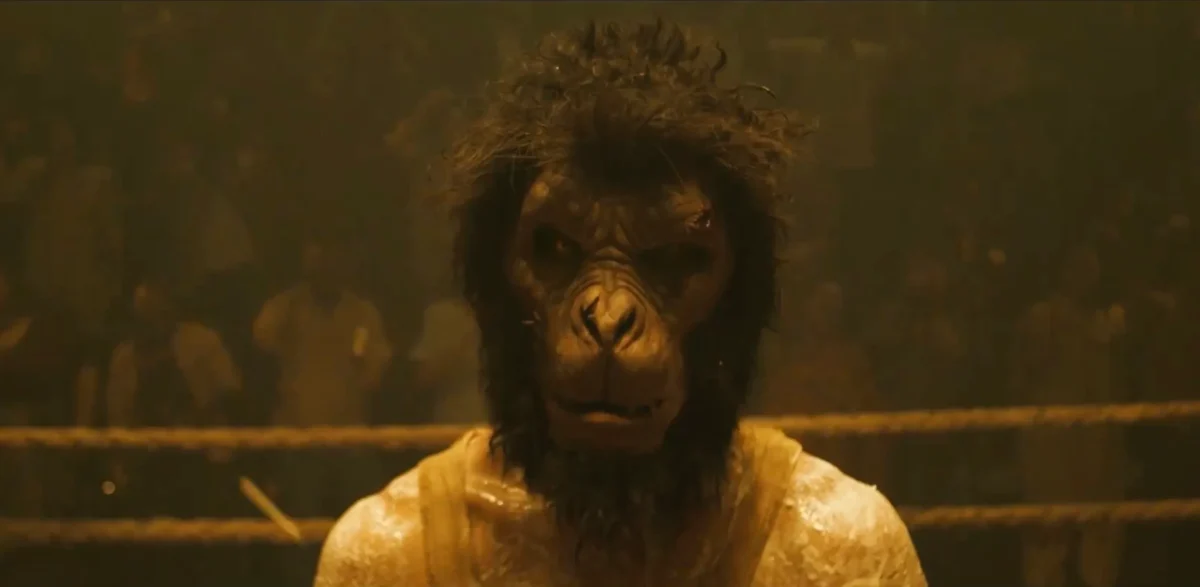In a directorial debut that almost didn’t happen, Dev Patel unleashes torrents of fury and trauma in equal measure. “Monkey Man,” which premiered at SXSW on March 11, 2024, is a classic revenge-of-the-underdog story that delivers on the action, but misses its mark on plot. Set in the Indian fictional city of Yatana, the film is a grim condemnation of the corruption of the upper class and the abuse of marginalized communities that also parallels Hindu mythology.
The film features Dev Patel as the titular unnamed protagonist. Inspired by his mother’s story and childhood worship of the Hindu monkey deity Hanuman, Patel’s character goes after the King’s Club brothel, whose elite clientele — police chief Rana Singh (Sikandar Kher) and popular religious leader Baba Shakti (Makrand Deshpande) — destroyed his community when he was a child. He allies himself with other members of marginalized groups along his journey, including Sita (Sobhita Dhulipala), a sex worker at the brothel, and a transgender hijra community led by temple keeper Alpha (Vipin Sharma).
Though Patel uses the typical interspersed, partially revealing flashbacks to slowly piece together his character’s backstory, the culmination of that backstory — which occurs during a long hallucinogenic trip — feels lazy and anticlimactic. Though he supposedly reaches an epiphany after the trip, barely anything about Patel’s character changes from before to after. The following training montage, when Patel’s character prepares for the murderous third act of the film, is also lackluster. The protagonist punches a punching bag until it breaks and performs various other physical tasks, but it feels like an incomplete explanation of his later prowess in combat. Patel also briefly assists one of the hijra in using a punching bag, but the hijra takedown of numerous security guards seems like an unreasonable leap from that basic training.
That being said, the action in the movie hits its target every time. Violence is gratuitous. Noses are bitten, throats are stabbed, and a finger is cut off. Yet in the midst of all this bloodshed, despite the sympathetic portrayal of the protagonist, at no point does the violence feel good. It is always tinged with the blue-sky memory of the protagonist’s now-destroyed childhood or with the possibility of harming otherwise innocent bystanders. (Notably, he is only captured by police once, when he brakes hard during an auto-rickshaw chase to avoid hitting a young girl.) And at the end of the movie, during the final standoff, Baba Shakti delivers a half-convincing monologue about ending the cyclical nature of violence, right before attempting to kill the protagonist. Some combat scenes, especially when the protagonist is losing the battle, are presented from his point of view, complete with blurry vision and camera shake. The disgusting nature and terrible consequences of violence are always corollary to the action itself.
At the heart of this movie, of course, is the class conflict between the protagonist’s allied underdogs and the corrupt political elite, which parallels the present state of Indian politics. Videos of real-life protests are placed seamlessly with the storyline. According to The Hindu and numerous online observers, the despicable Sovereign Party’s color was saffron in earlier trailers, alluding to the current ruling Hindu nationalist party in India (the BJP), before it was changed to red in later trailers. But other than a vague disgust at recent waves of Hindu nationalism and minority marginalization, Monkey Man falls short of advocating any higher ideals or morals. It’s an action movie. That’s just what you get. Meanwhile, as elections go on in India this year, the film still hasn’t been released there, likely due to the film’s political themes.
Though the story gets shaky at times, the film’s relentless action and intriguing themes make it worth a watch.











